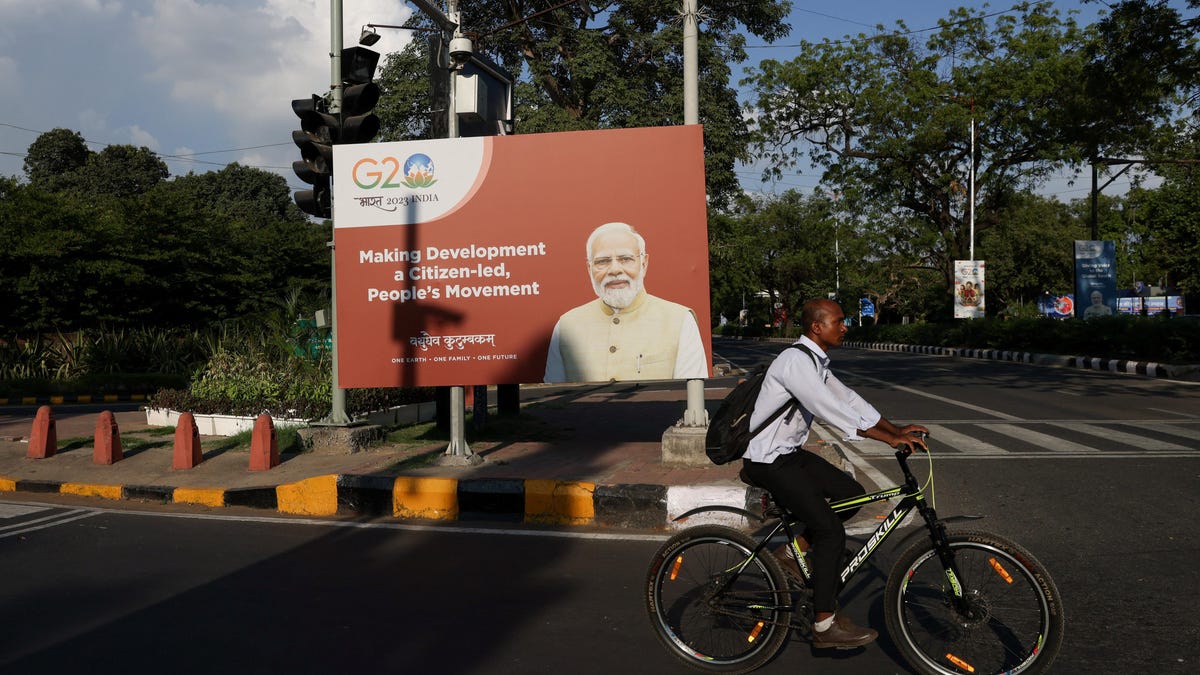For host country India, the G20 summit this weekend (Sept. 9-10) presents a tremendous opportunity to spearhead long-term, structural changes worldwide and gain favor at home and abroad. How long can consumer spending continue to support stocks?
India has the privilege of choosing the summit’s theme: “Vasudhaiva Kutumbakam” or “One Earth · One Family · One Future.” It will take the lead on various issues that the leaders will address, including sustainability, healthcare, equitable growth, and debt forgiveness for developing nations.
The G20 was established in 1999, consisting of finance ministers and central bank governors, following the 1997 Asian Financial Crisis. After the global financial crisis of 2007-2008, the heads of state began participating, with a focus on “international economic cooperation.” This is India’s first time hosting the forum.
If prime minister Narendra Modi handles the G20 presidency well, it could significantly boost his image. Modi is not only relishing the prestige of chairing the G20, but also positioning himself as a prominent global leader ahead of India’s 2024 national elections. The messaging is overt, with his smiling face gracing billboards across the country and the G20 logo—a globe with a lotus, coincidentally the election symbol of his Bharatiya Janata Party (BJP)—prominent everywhere. Only time will tell if it will be enough to overshadow domestic issues such as soaring youth unemployment and increasing communal conflicts.
Some highlights from the agenda of G20 attendees:
US: President Joe Biden’s top priority is to establish a joint railway project in the Middle East. He plans to announce a major joint infrastructure deal with India, Saudi Arabia, and the UAE, connecting Gulf and Arab countries through a railway network. The project will also connect to India via shipping lanes from regional ports. A bilateral meeting between Biden and Saudi crown prince Mohammed bin Salman during the G20 summit is increasingly likely. US treasury secretary Janet Yellen is also attending, with a focus on the International Monetary Fund, World Bank, and other financial resources.
UK: Prime minister Rishi Sunak, often referred to as “India’s son-in-law” due to his marriage to the daughter of Infosys’s Narayana Murthy, is expected to prioritize progress on the long-awaited UK-India free trade agreement. The deal aims to lower tariffs on British goods and services in exchange for easier access for Indian importers and more visas for Indian students and workers. However, migration levels remain a significant point of contention.
Russia: Premier Vladimir Putin is not attending the summit, but his foreign minister Sergei Lavrov is representing the country. During the 2022 summit in Bali, Indonesia, Lavrov made an untimely exit over the Russia-Ukraine conflict. To avoid further conflict, India diplomatically proposed a joint G20 statement condemning the war in Ukraine that considers the views of both Russia and China. If a consensus on the joint statement is not reached, it will be a first in G20 history.
China: India and China have a deeply contentious relationship. China’s fixation on geopolitical tensions over participation in the prestigious international meeting is evident, despite the US urging otherwise. Chinese premier Li Qiang will be attending in place of leader Xi Jinping.
Commentary on India’s approach to the G20: “New Delhi views the G20 presidency as an opportunity to show that it has the capacity to serve as a bridge to the Global South; that it can show India’s ability to manage relations with rival powers.” — Michael Kugelman, Director of the South Asia Institute at the Wilson Center in Washington, to TIME magazine.
Key statistics about the G20 countries:
- They account for 85% of the world’s economic output.
- They represent 75% of the world’s trade.
- They encompass 67% of the world’s population.
- They occupy 60% of the world’s land area among the 19 member countries and the European Union (EU) bloc.
Delhi’s preparations for the G20 summit:
- Slums and unofficial housing have been demolished, resulting in the forceful eviction and displacement of thousands of people.
- Around 300,000 street vendors have been removed from the central areas of the capital.
- Cardboard cutouts of langurs have been placed in Central Delhi to deter monkeys. Additionally, around 40 individuals have been trained and deployed to make langur noises to scare away smaller monkeys roaming the city.
- Animal activists have raised concerns about the inhumane removal of stray dogs by municipal workers, which involves the use of rods and nooses. The Animal Birth Control Rules explicitly prohibit the relocation of stray dogs, but local authorities deny breaking the law.
- Several movie theaters, including those operated by PVR, the country’s largest multiplex chain, have been closed to make way for the premiere of Shahrukh Khan’s film, “Jawan.” Despite the closure, the movie has achieved significant pre-booking sales, surpassing the opening record of Khan’s previous blockbuster, “Pathan.”
Related stories:
- Biden to use G20 summit and Vietnam visit to position the US as a reliable alternative to China.
- The G20’s lack of seriousness in addressing the debt of poor countries.
- The G20’s contradictory pledge to end fossil fuel subsidies in 2021, followed by a quadrupling of subsidies in 2022.
Denial of responsibility! Vigour Times is an automatic aggregator of Global media. In each content, the hyperlink to the primary source is specified. All trademarks belong to their rightful owners, and all materials to their authors. For any complaint, please reach us at – [email protected]. We will take necessary action within 24 hours.


